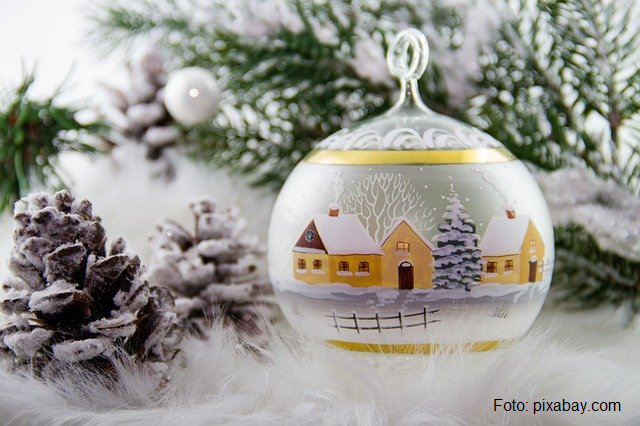Christmas in Romania
In the old rural communities, customs have remained almost unchanged.

Monica Chiorpec, 25.12.2022, 14:25
Christmas is, to most Romanians, one of the most important holidays of the year. The Christmas spirit seems to have remained the same for centuries. In the old rural communities, customs have remained almost unchanged. Sabina Ispas, head of the Constantin Brăiloiu Institute of Ethnography and Folklore in Bucharest, tells us more about it: Preparations for the festive days are completed on December 23rd. The 12 festive days start on Christmas day, December 25th and end on January 7th, with the celebration of St. John the Baptist. On the 23rd, sometimes on the 24th of December, children go caroling. This custom opens the series of ceremonies and rituals dedicated to the winter holidays. In traditional communities, a very important moment is the men’s band caroling, a ritual that integrates the community, each family and each member of a family within the sacred time of the Birth of Jesus. There is a special repertoire for this ritual of integration, which mentions the house and all its inhabitants, each of them taken separately, starting with the father, the head of the family, his wife and the children, from the eldest to the youngest. There are also carols for the dead, if anyone in that house died during the past year. Carolers are rewarded with gifts, among which cakes and wine.
Maramureș is probably one of the few regions in Romania where Christmas traditions have remained largely unaltered by urban influences. Delia Suiogan, an ethnologist with the North University of Baia Mare, explains: Christmas in Maramureș is particularly beautiful. It is marked by wonderful rituals, which are related to the preparation for Christmas, the three holy days of Christmas, and also ceremonies marking the end of this holiday. This is important, because each stage has very well-preserved rituals, and failing to perform any of them cancels the effect of all others. The Christmas Eve plays an almost more important role than the Christmas day itself. On Christmas Eve, there is a big celebration in the villages. The most important meals are prepared and everybody is fasting. In fact, it is very important not to eat at all on Christmas Eve, for purification, which will bring good health for the entire next year.
Christmas dinner is at the center of the celebration of the Nativity in all Romanian communities. Before tasting the special dishes, the family kneels for prayer. After dinner, all those present leave the table at the same moment, in sign of deep spiritual communion. Groups of young men go caroling, with lit torches. Delia Suiogan: Also on Christmas Eve, women make sure that the braided bread, made especially for this occasion, is ready and is placed on the table around which carolers will sing. Under the Christmas bread, the greenest, best hay, cut especially for such holidays, will be placed. The cakes that will be offered to carolers must also be ready. Men will bring the nuts and apples from the attic. The house must be decorated and the table moved to the middle of the room. According to a beautiful ritual from Maramures, the legs of the table, placed in the middle of the room, are tied with a chain. This is done so that the coming year will be whole, and the family will be united. It is also believed that this ritual also protects farm animals from disease and thieves. Children are the first to go caroling. In Maramureș, the groups of kids include both boys and girls. The relationship between them is very important, because they will not go caroling on one street alone, but also on the streets where members from the group have relatives and friends. On Christmas Eve, caroling is allowed as early as noon, and children are very well received by the hosts.
Very often, the period before Christmas turns, especially for city dwellers, into a shopping marathon. But most important of all is that Christmas is the perfect time to make things right, make peace with everybody and strengthen relationships, for a new beginning. (EE)





























